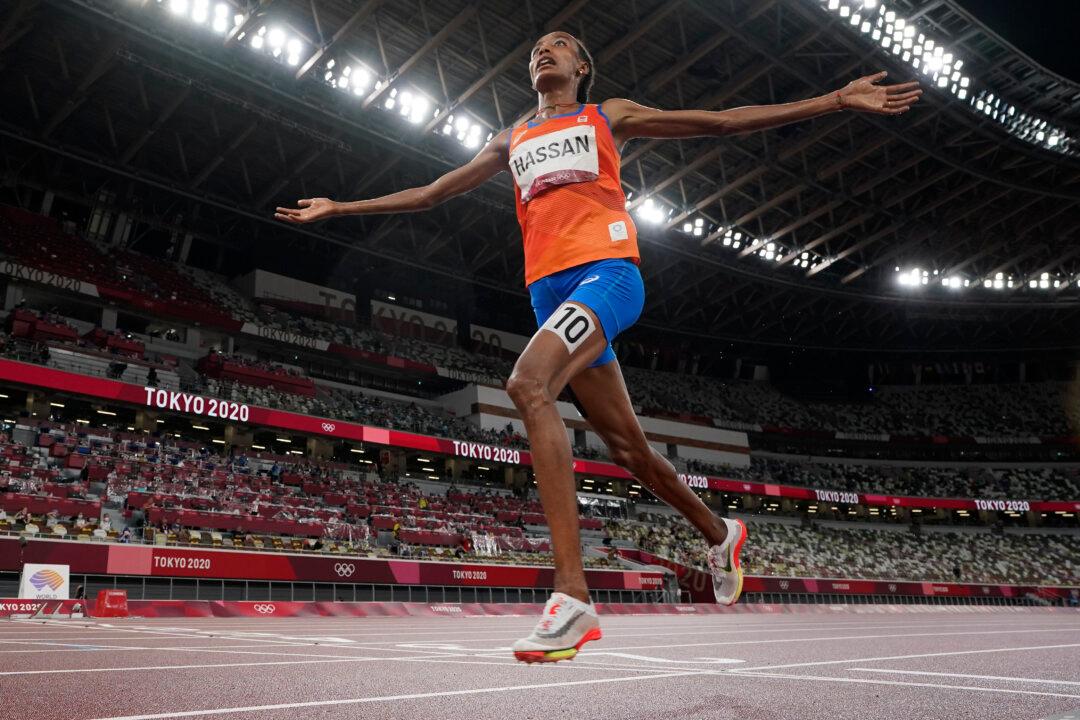TOKYO—Sifan Hassan scored two remarkable victories on the Olympic track Monday. Her gold-medal run in the women’s 5,000 meters came a mere 11 hours after she picked herself up from a scary fall on the final lap of her 1,500-meter heat to not only finish that race—but win it, as well.
Those two wins kept Hassan, the Ethiopian-born 28-year-old who now competes for the Netherlands, very much in the mix for not one, not two, but three medals—in the 1,500, the 5,000 and the 10,000.





